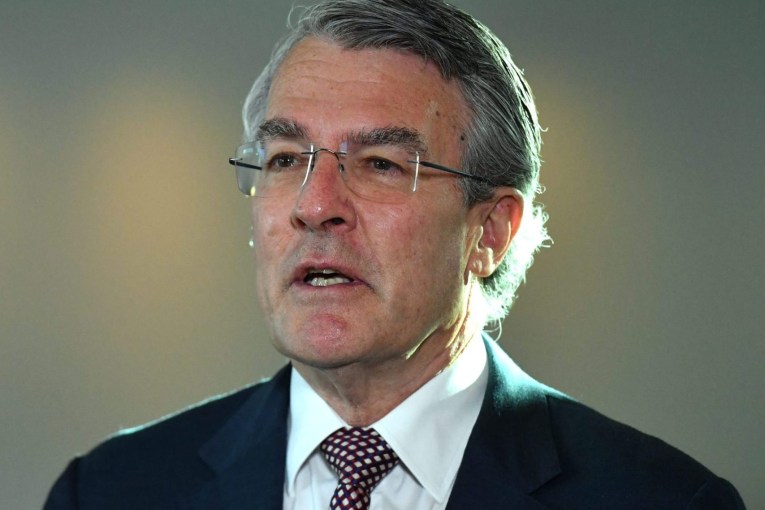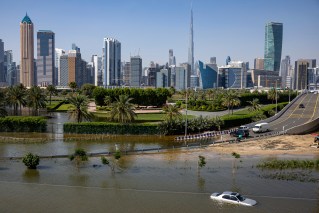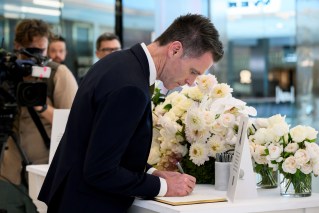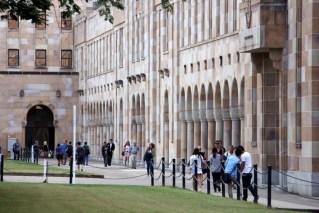More lockdowns likely thanks to vaccine shambles, says think tank
Australia faces as many as 34 days of future lockdowns thanks to delays in the Morrison Government’s vaccine rollout, a report by policy think tank The McKell Institute has warned.
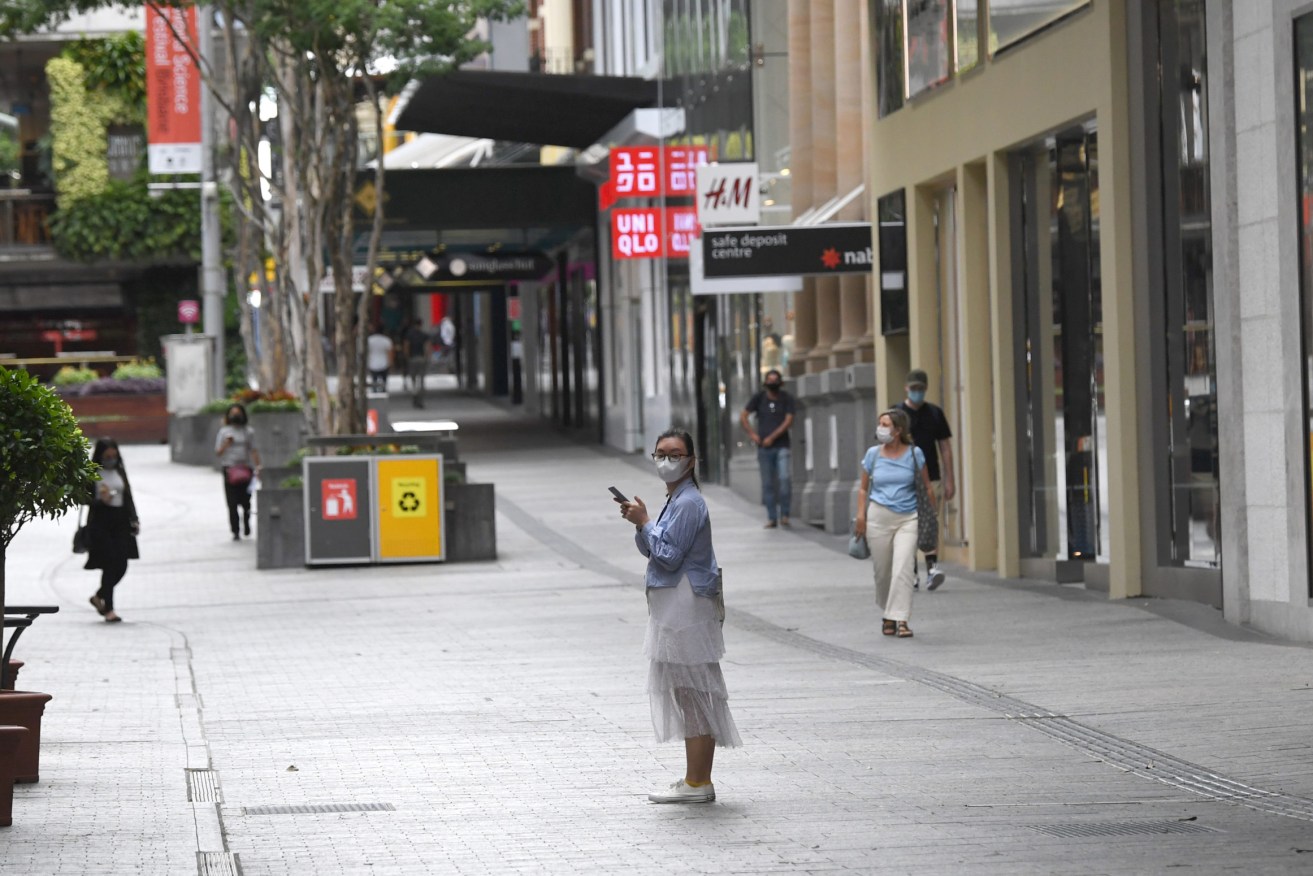
A near empty Queen Street mall during Brisbane's most recent pandemic-related lockdown. Photo: AAP Image/Darren England
The institute also estimates that the daily cost of recent lockdowns in Brisbane, Sydney and Melbourne was about $123 million.
In a report released on Monday, the institute said Australia would need to have the second highest rates of COVID-19 vaccinations in the world to reach the Government’s original “roadmap” targets.
However, it estimates the now delayed vaccine rollout risks as many as 34 more days of lockdowns into the future based on the need to have 65 per cent of the nation vaccinated for herd immunity.
“The delay in achieving herd immunity increases the risk of lockdowns and border closures. These policies in turn have economic costs,” the report says.
The report’s release comes as Labor steps up its attack on the Government over vaccination delays.
Prime Minister Scott Morrison has dumped vaccine targets altogether, conceding all Australians may not be vaccinated before the end of the year.
Shadow treasurer Jim Chalmers slammed the decision to ditch the vaccine rollout timetable, describing it as a “shambles” and warning of economic consequences.
The government had already fallen behind in its vaccine timetable even before it was thrown into further disarray last week when health authorities recommended the AstraZeneca vaccine should not be given to people under 50 on concerns over blood clotting.
“This has been a shambles from the beginning,” Dr Chalmers told Sky News on Monday.
“The government was too focused on announcements and on marketing and not enough focus on delivery and on planning.”
Last week the International Monetary Fund, while upgrading its economic forecast for Australia, also warned much still depends on the “race between the virus and vaccines”.
“You can’t have a first-rate economic recovery with a third-rate vaccine rollout. It risks more lockdowns for longer,” Dr Chalmers said.
On Sunday the government said there had been 1.16 million vaccinations so far.
Meanwhile, a prominent economist is warning international travel for Australians is likely to remain restrictive until 2024.
Deloitte Access Economics’ quarterly business outlook, also released on Monday, expects international borders will re-open only gradually.
For Australia, Deloitte economist Chris Richardson anticipates there will be some sort of quarantine remaining for incoming travellers for some time.
“That keeps international travel – both inbound and outbound – pretty weak in 2022, and it may not return to pre-pandemic levels until 2024,” he said.
He said Australia’s economy appears to be “roaring back”, although like the Reserve Bank, he expects a lift in the interest rates to be some years away.
Richardson does not expect a sustained inflation rise back into the RBA’s two to three per cent target band to commence until 2023/24.
“A sustained lift in inflation requires a conga line of things to happen,” he said.
“It will take time for the jobs market to tighten and the unemployment rate to fall enough to lift wage pressures.
“This is going to be a slow moving train not a fast one,” he said.
Meanwhile, it has emerged that thousands of people living and working in specialist disability care are still waiting for their first vaccine doses, eight weeks into the rollout.
Disability accommodation providers and residents were supposed to be included in the first phase of the national rollout, which targets the country’s most vulnerable residents.
But Aruma chief executive Andrew Richardson said no vaccines had been administered across the organisation’s 350 group homes, which house at least 1500 people.
“It’s shameful – not one person with a disability living in any Aruma supported independent living setting has been vaccinated,” he told ABC radio on Monday.
David Moody from National Disability Services said there were similar stories across the country.
“We have many members who continue to be understandably concerned,” Moody said.
Chief Medical Officer Paul Kelly insists all disability care residents will be vaccinated by July.
“Phase 1a and 1b are overlapping and those two will be finished by the middle of the year,” he told ABC radio.
The Commonwealth has primary responsibility for vaccinating disability care residents, and has contracted private companies to deliver the jabs.
Kelly did not express any concerns with the sluggish speed of the vaccine rollout.
Health Minister Greg Hunt says there has been “significant in-reach” into the disability sector.
Hunt said he had spoken with the minister responsible for disability services, Linda Reynolds, on Monday to work through some of the issues.
“The disability sector has been great,” he told 4BC radio. “We will just make sure that everybody who seeks to be vaccinated is vaccinated.
“Safety first, medical advice first, and when we have to make adjustments … that is what we are doing.”
